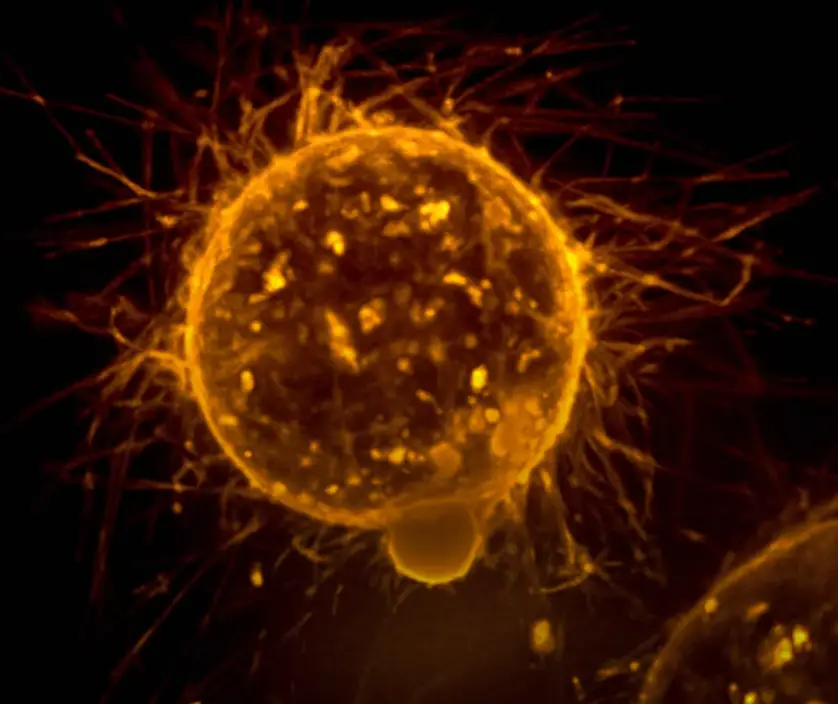Detecting cancer at an early stage significantly increases the chances of successful treatment. There are over 200 types of cancer, each with its own signs and symptoms.
The most important thing is to listen to your body and consult a doctor if you notice any unusual changes.
Cancer can affect specific areas of the body, such as the stomach or skin, or cause more general symptoms, including unexplained pain, fatigue, or weight loss. Some symptoms, like a lump, are widely known, but that doesn’t mean they are the most important or most likely indicators. Any unusual symptom should be checked by a healthcare professional.
Symptoms can vary from person to person, even for the same type of cancer. Some people may experience several symptoms, while others may have very few. It’s helpful to understand the types of symptoms to look out for:
- Ongoing symptoms – last for more than a few weeks or keep coming back.
- Unexplained symptoms – have no obvious cause, such as a new lump or unexpected bleeding.
- Unusual symptoms for you – changes that are not normal for your body, like a persistent cough or a changing mole.
Understanding these signs and speaking to your doctor promptly can make a real difference in early diagnosis and treatment success.
This article highlights three types of pain that could signal early-stage cancer.
1. Unexplained Back Pain
A number of people experience back pain every day. This pain may be a result of muscle strain, lifestyle factors, poor posture, certain underlying medical conditions, or simply, aging.
Cancer is rarely the cause for back pain, but it’s possible for lower back pain to be associated with cancers like spinal, colorectal, or ovarian cancer.
Healthline notes that “back pain that could be a sign of cancer usually occurs along with other cancer symptoms.”
Some of those symptoms include back pain unrelated to movement or not worsened by activity, pain that appears at night or early morning and eases during the day, persistent pain despite treatment, changes in bowel or urinary habits – including blood, sudden and unexplained weight loss, unexplained fatigue, weakness, numbness, or tingling in arms or legs.
Early-stage cancers like lung, pancreas, or kidney cancer can cause back pain by pressing on nearby nerves, muscles, or bones. Pancreatic cancer, in particular, often begins with gradually worsening back pain that may spread to the lower abdomen.
If your back pain is persistent, seek medical help.
2. Persistent Abdominal Pain
Abdominal pain is a common symptom that can be caused by many conditions, including cancer. In cancer, this pain may result from the tumor itself, its spread to other organs, or side effects of treatment.
Cancers that can cause abdominal pain include pancreatic cancer, liver cancer, stomach cancer, colorectal cancer, and ovarian cancer.
Early-stage stomach cancer may cause upper abdomen discomfort, which is usually rated as mild to moderate and described as bloating or a dull pain. Pain can increase in frequency from dull to sharp as cancer develops.
Some women with ovarian cancer may experience pelvic or abdominal pain, bloating, or changes in appetite.
So if you’re experiencing consistent, repetitive or severe abdominal pain — especially if it’s accompanied by weight loss, nausea or difficulty eating — it’s wise to have a healthcare provider assess the situation.
3. Headaches and Neurological Symptoms
Although most headaches are caused by dehydration, illness, or sinus problems and aren’t usually concerning, they can also indicate a brain tumor, so it’s important to know what other warning signs to look for.
Because the skull is made of bones, anything that grows inside it — such as a tumor — can raise pressure on the brain. This increase in intracranial pressure frequently presents as headaches.
Consult with your doctor if you are dealing with new headache patterns, headaches that wake you from a sound sleep or are very painful; nausea, vision issues (flashing lights or blind spots), or headaches that worsen over weeks or months.
According to The Brain Tumor Charity, headaches caused by brain tumours are usually not relieved by painkillers, worse in the morning, and aggravated by straining, coughing, shouting, or bending over. Their intensity may lessen when standing upright, as cerebrospinal fluid (CSF) begins to drain.
Disclaimer: This article is for informational purposes only. Consult a healthcare professional if you notice warning signs or changes in your body.
Please SHARE this article with your family and friends on Facebook.
Bored Daddy
Love and Peace




